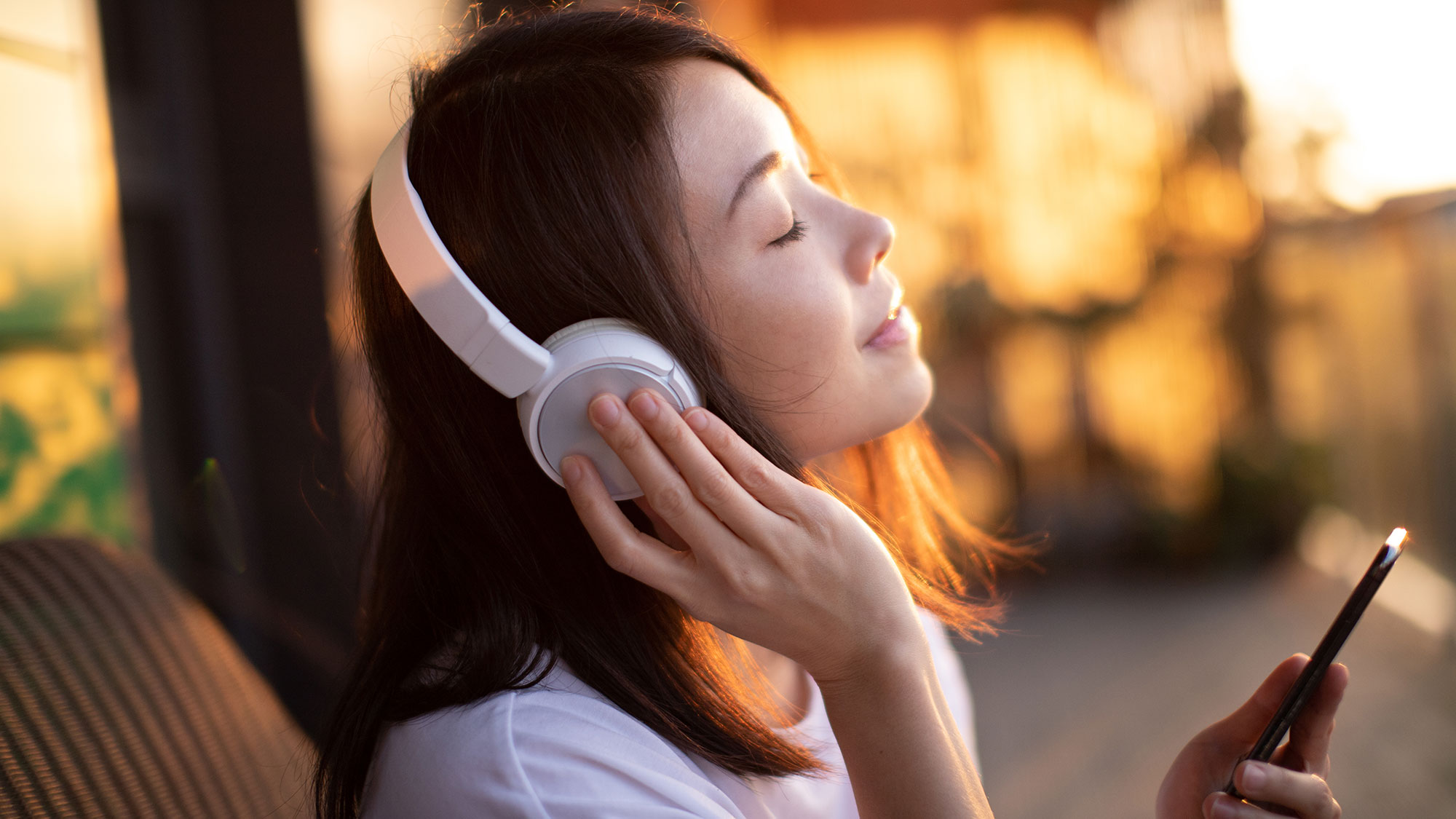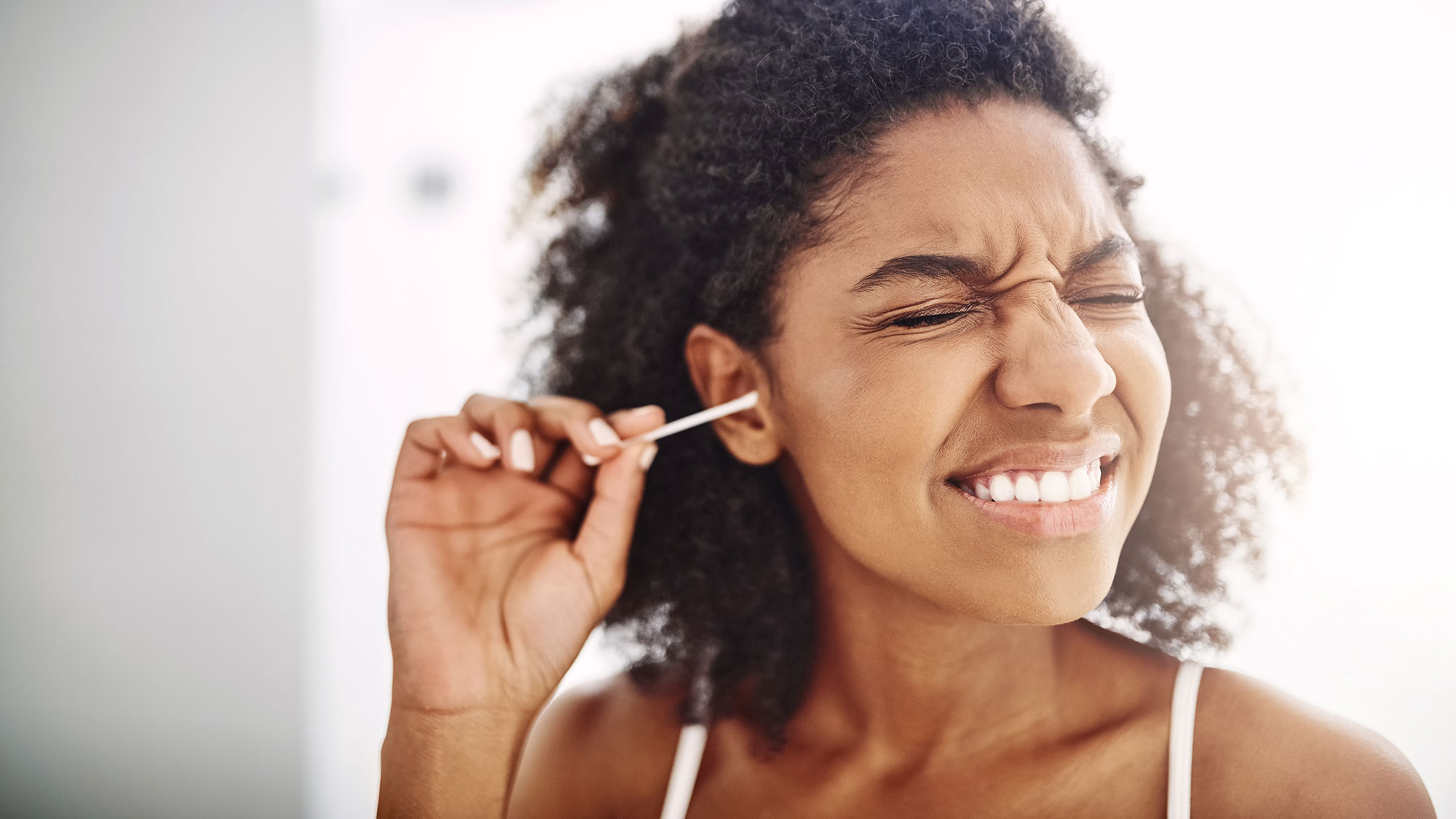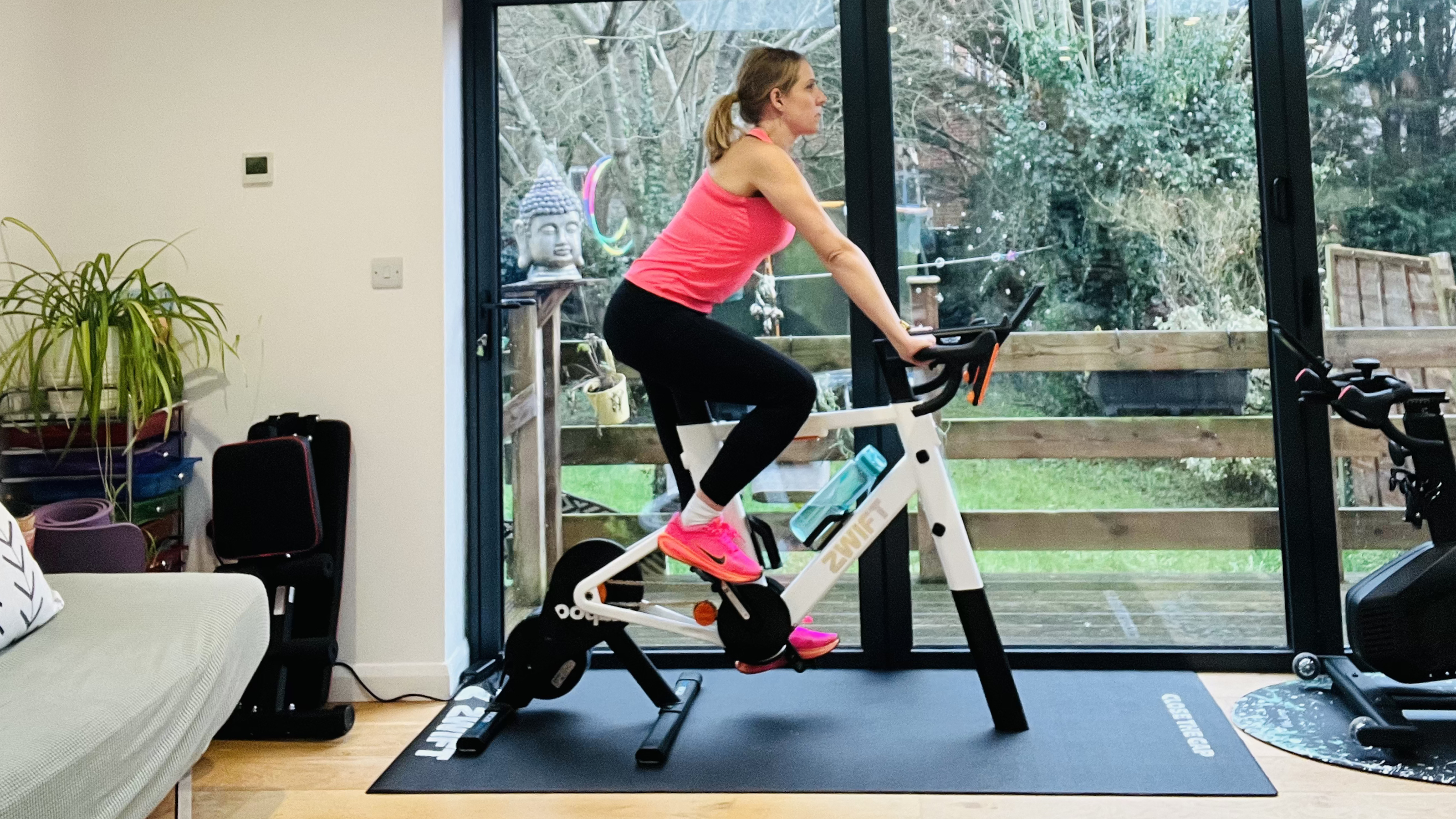9 steps to take now to help protect your hearing
Simple steps can help protect your hearing, from kicking the cotton swab habit to managing your stress levels


Learning how to protect your hearing may not be the first thing that springs to mind when you think about taking care of your physical health, but new research shows that looking after your ears can lead to a happier and healthier life.
While most of us take the uplifting effect of being able to hear our favorite sounds for granted, a recent study revealed that losing that ability has a detrimental effect on our wellbeing. With 89% of participants citing social and personal problems as a result of hearing loss, it’s clear that reducing your risk can help protect your mental - as well as your physical - health.
It’s tempting to think that hearing loss is something that only affects older people. Whilst age is the strongest predictor (91% of those who experience hearing difficulties in the U.S. are over 50), the damage often starts much earlier.
With approximately 15% of Americans over the age of 18 reporting some trouble with hearing due to work-related or recreational noise and over 1 billion young adults globally at risk of permanent and avoidable hearing loss, it’s never too early to take steps to reduce your risk of hearing loss.
Below we outline 9 simple steps you can take now to protect your hearing, helping to ensure you can continue to fully enjoy the sounds you love - whether it’s the sweet sound of birdsong or the feel-good lyrics of an upbeat tune.
1. Use earplugs around loud noises
Noise is all around us, but exposure to too much loud noise can have a detrimental effect on your hearing.
While the occasional concert or fireworks show is unlikely to cause damage, continued exposure to sounds over 85 decibels can cause hearing loss and other hearing-related issues, such as tinnitus (ringing in the ears).
Start your week with achievable workout ideas, health tips and wellbeing advice in your inbox.
As Matthew Allsop, Partner and Operations Director at Harley Street Hearing, explains: “It isn’t just the intensity of the sound which is damaging, but also the duration that one is exposed to those sounds,” he explains.
“What we think is excessive is normally a long way over excessive by way of damage to our ears. If we’re exposed to sounds over 85dB for longer than eight hours per day then we could be causing damage to our hearing.”
According to the United States Centers for Disease Control and Prevention (CDC), around 40 million US adults aged 20-69 have noise-induced hearing loss - and more than 1 in 2 of those don’t have noisy jobs. While those may not sound like cheery statistics, the good news is that for most of us, hearing loss is caused by recreational exposure to noise and can be prevented by taking measures such as wearing earplugs.
Whether you’re at a club, mowing the lawn, using a chainsaw, or find yourself around any prolonged loud noise that requires you to shout to have a conversation, pop in a pair of earplugs. They’re affordable, easy to attain, and when used consistently they can help reduce your risk of hearing loss.
2. Turn the volume down
Stats from the CDC state that five in 10 young people listen to music or other audio too loudly, and 4 in 10 are regularly around dangerously loud noises at concerts and sports games. Thankfully, you can still do all the things you love while saving your hearing at the same time by taking some simple steps to lower the volume of noise.
When in the comfort of your own home, turn down the volume on the TV, your phone, music devices and your computer. Make sure children are kept away from loud noises at home and keep their ears protected at public events.
Similarly, when listening to audio via earphones, avoid listening at the maximum volume. For those times when you don’t want to lower the volume, take regular listening breaks to reduce exposure.
Outside of the home, stay away from loudspeakers at public events such as concerts. And if you work with power tools or machinery, invest in quiet models where available and keep equipment well lubricated and maintained to reduce noise.
3. Stop using cotton swabs in your ears

Many of us are guilty of occasionally sticking a cotton swab in our ear to remove built-up wax, but it's a big no-no according to Dr. Yu-Tung Wong, an otologist at Cedars-Sinai hospital.
“Cotton swabs can cause punctured eardrums and hearing loss,” explains Wong. “In severe cases, the cotton swab can damage many sensitive structures behind the ear canal and cause complete deafness, prolonged vertigo with nausea and vomiting, loss of taste function, and even facial paralysis.”
While it can be tempting to clean out your ears with cotton swabs, it’s important to resist. Earwax is there to help keep the ears healthy, trapping dust and dirt so it doesn’t travel deeper into the ear.
For most of us, chewing and other jaw movements are enough to remove old wax, but if you’re concerned about excessive earwax, speak to your doctor who can advise you on the best course of treatment.
4. Take medication only as directed
It’s important if you’re on any existing or new medication to always follow your doctor’s instructions around the appropriate daily dosage. That's because some drugs can damage the sensory cells responsible for hearing when taken in doses that exceed professional guidelines.
Common culprits include certain antibiotics, chemotherapy drugs, some pain relief medication and diuretics. If you experience any unusual symptoms when taking medication correctly, such as hearing loss or tinnitus, speak to your doctor immediately.
5. Keep your ears dry
Swimmer's ear might sound like something that only affects those who like to swim laps, but it's actually an infection caused by excess moisture that allows bacteria to enter and attack the ear canal - and it can affect anyone. Over the long term, regular bouts of swimmer's ear can lead to permanent hearing damage.
To keep your ears in tip-top shape, be sure to towel dry them thoroughly after swimming, bathing or showering. For those annoying moments where you can feel your ears blocked with water, tilt your head to one side and gently tug on the ear lobe to release the water.
If you swim regularly, it’s worth investing in a good pair of custom-fit earplugs that will block the water and keep it in the pool or ocean where it belongs.
6. Get your cardio on

You probably know that exercise is great for reducing your risk of developing diabetes or heart disease, weight management and giving your mental health a boost, but did you know those daily exercise sessions could also be helping to prevent hearing loss? It’s true!
A study by researchers at the University of Florida found that regular exercise can help prevent, or at least slow down, age-related hearing loss by increasing blood flow to the ears. Good blood flow is essential for keeping the tiny hair cells in the inner ear healthy, which are responsible for translating the sound collected by your ears into electrical impulses that are then sent to the brain.
These hair cells don’t regenerate, so our ability to hear is dependent on us keeping them in good shape. Regular exercise is the best way to do that; aim for 30 minutes a day at least five times a week.
7. Manage stress levels
Hearing loss can be a secondary symptom of many stress-related health issues, such as diabetes, heart disease, and high blood pressure. Stress and anxiety have also been linked to both temporary and permanent tinnitus.
According to Allsop, 50% of tinnitus has a physiological cause and 50% is psychological. “We can’t do anything to manage the physiological part as the cause of tinnitus has already happened and more often than not it’s there to stay," he says. "However, we can do things to take care of the psychological element.”
While researchers aren’t clear exactly how stress and anxiety cause tinnitus, it’s likely a result of continued activation of the flight or fight system. This response puts pressure on the nerves and that pressure then travels up into the inner ear where it causes a phantom ringing sound.
“Speaking as a person with tinnitus, I can share that if I’m tired, stressed, unwell, or have a lot going on, my tinnitus really comes to the forefront,” explains Allsop.
To keep your stress levels within healthy limits, consider committing to a daily self-care practice to help you unwind and help your body and mind stay calm. Whether it’s doing some low-impact exercises, working up a sweat at the gym, learning how to meditate, pottering in the garden or whipping out your journal, find something that works for you and stick with it.
8. Quit smoking
If you smoke and you’ve been looking for a reason to kick the habit, then here’s a big one: studies have shown that smoking is significantly associated with hearing loss. Researchers at the University of Manchester looked at 164,770 adults aged 40 to 69 and found that current smokers have a 15% higher likelihood of hearing loss than non-smokers.
Medical professionals believe that the nicotine and carbon monoxide contained in cigarettes tighten blood vessels, starving the inner ear of the oxygen it needs to stay healthy, while also preventing sound from being processed correctly.
Speaking on the release of the 2018 study, Dr. Ralph Holme said: “Hearing loss is often viewed as an inevitable consequence of aging, but as the research shows, this may not always be the case. Giving up smoking and protecting your ears from loud noise are two practical steps people can take today to prevent hearing loss later in life.”
9. Don't ignore the signs
“Communication as a whole is made up of three key areas: hearing, vision, and context,” says Allsop. "Because we can communicate well with two of these three working effectively hearing loss can often be overlooked."
As an example, "if the hearing is down then we can rely on visual cues (such as lip reading) and context to fill the gaps, and therefore we don’t realize when our ears aren’t working properly.”
So, the advice is that if you're concerned about your hearing, take action. Consult a healthcare professional, such as your primary health provider, otolaryngologist, audiologist or a hearing instrument specialist.
Educating yourself on the types of hearing loss can also help you to reduce your risk and to seek the appropriate treatment should you need it.
Kathryn is a freelance health and wellness writer. She previously worked for 10 years as an educator in the health care industry before leaving to spend her days indulging her love of writing. An avid meditator and long-distance walker with a passion for mental and emotional wellbeing, she’s happiest when she’s surrounded by mountains and oceans. When not writing words or thinking about them while walking, she can usually be found brewing a cup of herbal tea from her vast collection or trying to figure out healthy ways of incorporating chocolate and peanut butter into almost every meal.
-
 I tried using the Zwift Ride indoor bike for 30 days and it got me out of a workout slump and jump-started a love of cardio
I tried using the Zwift Ride indoor bike for 30 days and it got me out of a workout slump and jump-started a love of cardioHow a month on an indoor smart bike turned cardio into a habit
-
 Jessica Biel’s trainer reveals how she works out when she’s “juggling work life and mom life” and it’s a great way for anyone to train
Jessica Biel’s trainer reveals how she works out when she’s “juggling work life and mom life” and it’s a great way for anyone to trainIt’s a “short and sweet full-body workout” plus we’ve included a more beginner-friendly version
